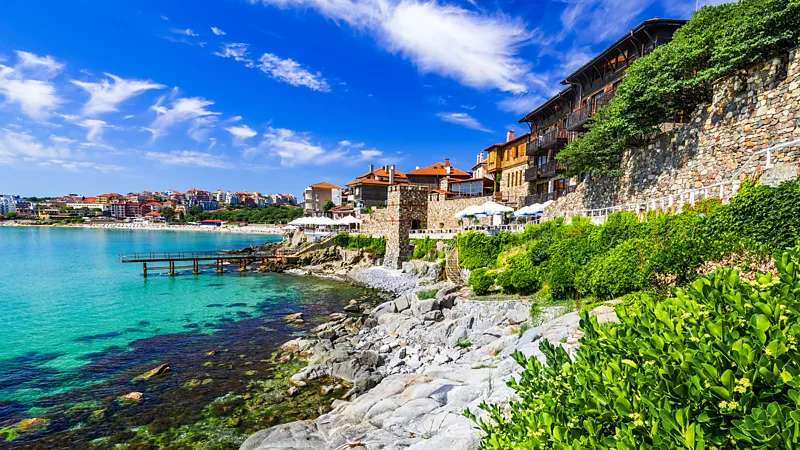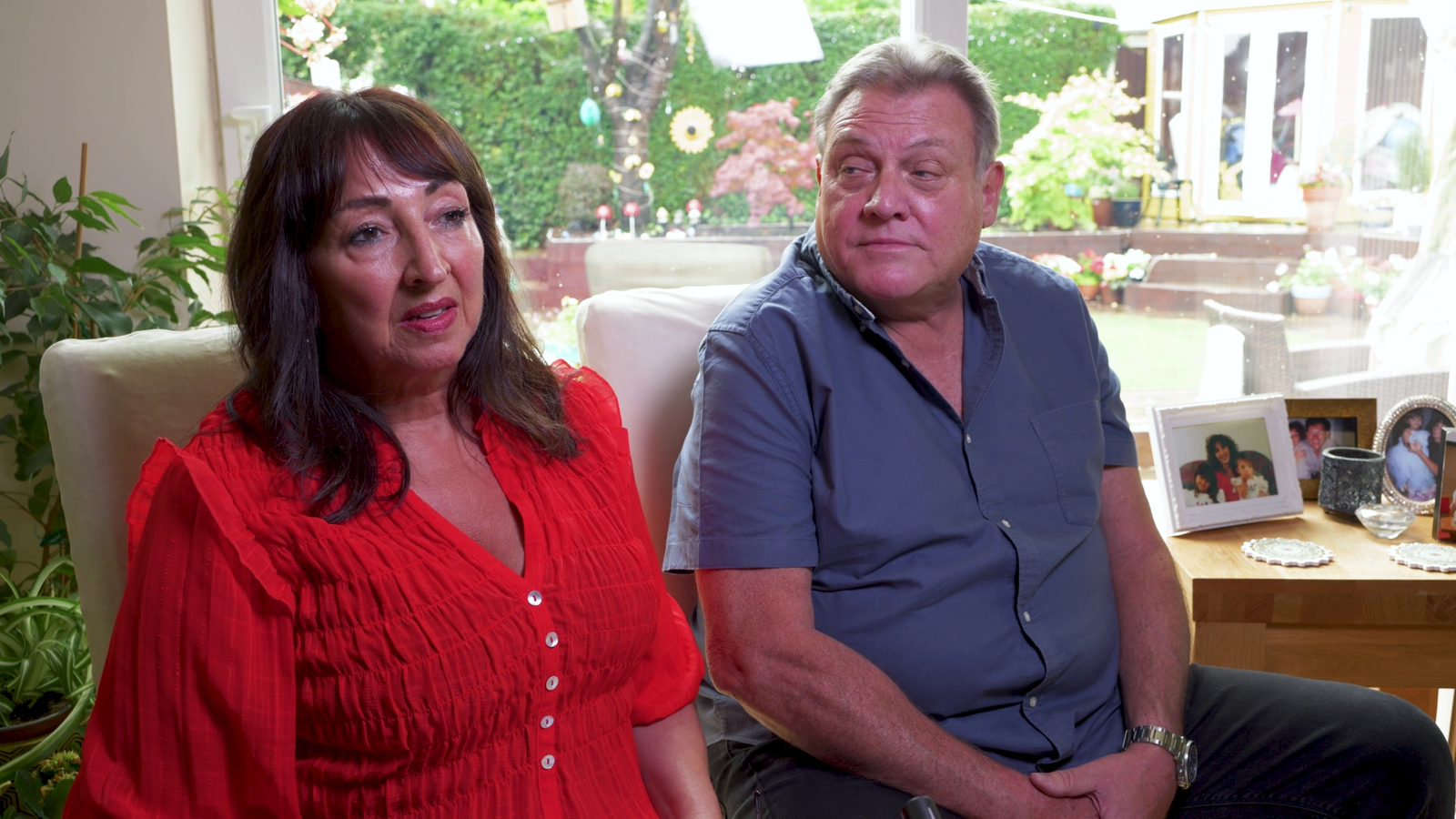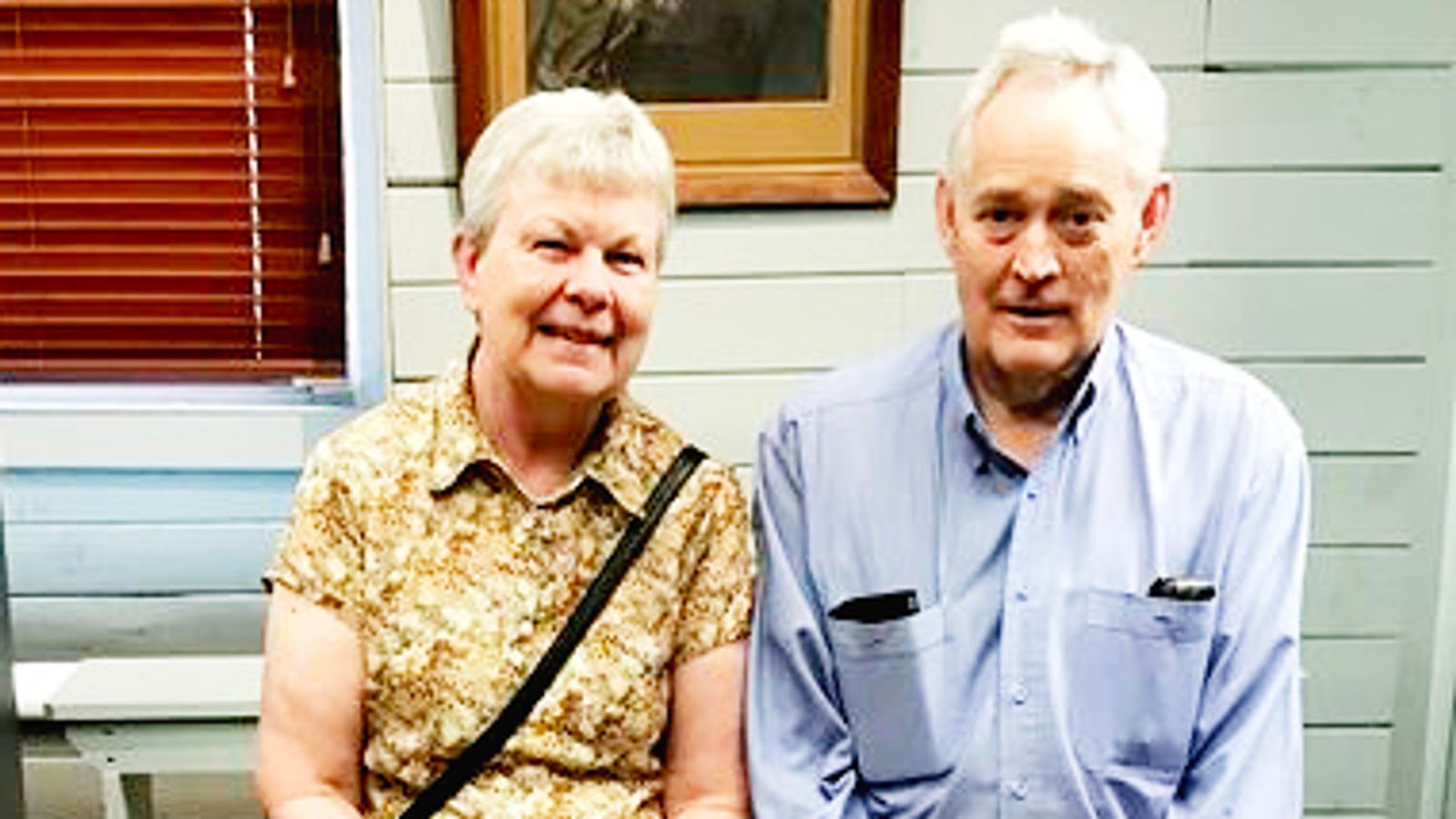A 'mini-Greece' by the sea with a treasure trove just off the shore
The BBC's Wonders of Bulgaria explores Sozopol, a bustling port city where incredible relics from Antiquity are being uncovered just a few metres below the water.

Perched on a rocky peninsula, Sozopol's old town is a bird's nest of stone and timber. Solid family homes, robustly restored city walls and weather-beaten cliffs give a tight-knit, fortress vibe. But where this ancient settlement faces west, towards the small island of St Kirik, Sozopol throws welcoming arms around its natural harbour, offering sailors a safe port of call along this choppy stretch of the Black Sea coast.
Sozopol is now one of Bulgaria's most popular resorts, with medieval churches and wide sandy beaches. But it is that embracing harbour that first brought travelling ancient Greeks to Sozopol more than 2,500 years ago. The town's modern name derives from the Greek for "City of Salvation", but in the first millennium BC it was called Apollonia Pontica (Apollo of the Black Sea) after the great Greek Sun god Apollo. Apollonia Pontica grew into a bustling port city, complete with a substantial temple to Apollo, and a 13m-tall bronze image of the god. As far as ancient Greek statues go, this was second in size only to the Colossus of Rhodes, one of the Seven Wonders of the Ancient World. Famous throughout the Eastern Mediterranean, Apollonia Pontica's giant statue featured on the city's coins and was eventually stolen by the Romans.
Bettany Hughes is a multi-award-winning historian, author and broadcaster who has devoted the last 25 years to the vibrant and inclusive communication of the past. She has written and presented more than 50 TV and radio documentaries for broadcasters including the BBC, Channel 4, Netflix, Discovery, The History Channel, National Geographic and ITV. Bettany has been a Professor at the New College of Humanities and a Research Fellow at King's College London. She has been honoured with numerous awards including the Medlicott Medal for services to history, Europe's Cultural Heritage Prize and an OBE for services to history.
On a sunny, early spring day, it can be hard to imagine the dangers of sailing the Black Sea. But for both ancient and modern seafarers, this area can be treacherous, says Nayden Prahov, director of the Sozopol-based Centre for Underwater Archaeology. "It's a risky sailing route, because of the southern winds on the Black Sea," Prahov tells me when I meet him on his dive boat Hristina, anchored among the blue and white fishing boats that line the harbour. "This is the first safe harbour between the Bosphorus and the Balkan Mountains."
Prahov explains that back in Antiquity, the entrance into the port was through a narrow opening at the northern end, now closed off by a breakwater. This would not have been easy to navigate; but once inside, the ships were safe, sheltered between the peninsula and St Kirik Island. "This is the reason that the symbol of Apollonia Pontica is the anchor," Prahov adds with a smile.
The result is a thick layer of what was once rubbish – mostly thousands of pieces of broken pottery, from utilitarian jars to finely-painted drinking cups – but is now an invaluable source of information and evidence about one of the greatest ports on the ancient Black Sea.
Apollonia Pontica was founded by Greeks from Miletus, now in western Turkey, in 610BC. They were pioneers in a vast movement of people and ideas, a process described by some as "Greek colonisation" that lasted from the 8th to the 6th Century BC and saw dozens if not hundreds of settlements established around the Mediterranean and the Black Sea – as far west as southern Spain and as far east as Georgia.
Apollonia Pontica was one of the first such colonies on the Black Sea. The safety of its port played a central part in transforming the sea once known to the Greeks as the Pontos Axeinos, or the "Inhospitable Sea", into the Pontos Euxeinos, or "Hospitable" one. But the Greeks did not arrive in a deserted land. This part of the world was home to the Thracians, a powerful, confident civilisation. And the trade between the local population and the Greek settlers was at the heart of the city's growth and prosperity: in exchange for grain, salt, timber and copper ore from the local mines, the Greeks brought sought-after produce from the Mediterranean, in particular olive oil and wine. During the excavations, local archaeologists have even found a glass perfume bottle from the Roman period with oily perfume still intact inside.
You don't have to look far to find that Mediterranean influence still alive and well among the cobbled streets and seafront tavernas of Sozopol today. Locals and visitors alike compete for the best harbour-side tables, laden with a fusion of Balkan and Greek cuisine: grilled fish, taramasalata, mussels and saganaki, and of course, the ever-reliable "Greek" salad.
Sozopol's Mediterranean character is not a fossilised relic of the long-lost ancient world that Prahov and his team are so busy uncovering. Remarkably, along with other Black Sea fishing villages that trace their origin back to Greek colonies, Sozopol remained majority Greek-speaking well into the early 20th Century, until population exchanges across the Balkans saw most of the town's ethnic Greeks abandon their homes and move to Greece itself.
We are all proud of our lineage. It's what unites us, that we are from ancient Apollonia – Aspasia Porozhanova
Some, however, remained, as Aspasia Porozhanova confirms when I sit down with her outside the Fishermen's Association clubhouse. As the Sun sets over the harbour, Porozhanova is at pains to point out that all Sozopolitans are proud Bulgarians, but that a small number of families are also determinedly hanging on to their Greek heritage. "It's difficult to answer, 'Who are we?' or 'How long have we been here?' But we are all proud of our lineage. It's what unites us, that we are from ancient Apollonia."
Delightfully, Porozhanova shares her first name with the infamous concubine of Perikles, the great ancient Athenian leader. "I'm named after my grandmother," she explains, "as she was named after hers, and my granddaughter is named after me. So we pass our names down within the family." To my fascination, she and her friends share a few words in Sozopolitan Greek, a unique dialect that most Greeks would struggle to understand.
My time with Porozhanova ends on a sweet note. Drained ouzo glasses are pushed aside to make way for a tray piled high with damga, a special kind of fried cake made according to a secret recipe and not found anywhere outside of Sozopol old town. A delicious emblem of the city's rich cultural mix, enduring character and cosmopolitan heritage.
-BBC







